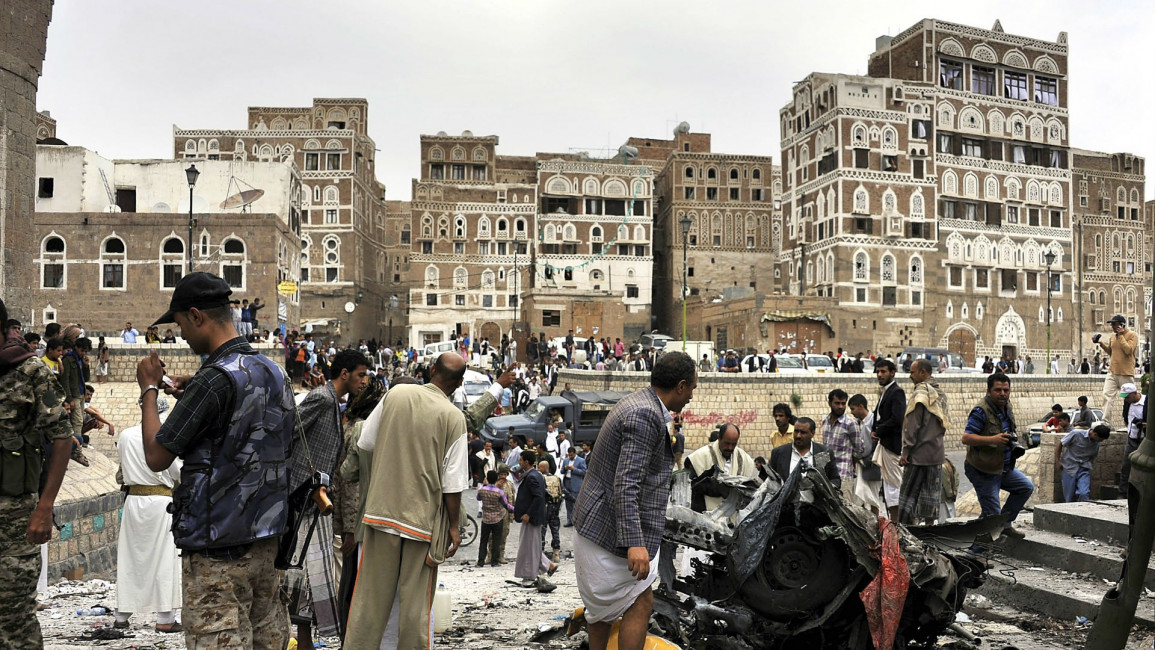
Peace in Yemen? Perhaps not in our time
Even before talks between the Yemeni factions in Geneva had commenced last week, it was obvious they would not result in anything new. This was clear from the contradictory statements of the Yemeni factions and the people who represented each side.
The Houthi delegation was composed of junior leaders, and their insistence on having twice the agreed number of participants in the delegation resulted in diverting the course of the talks to procedural issues.
The government's delegation was no better, as it also was composed of junior politicians aligned with President Abd Rabbu Mansour Hadi, with little experience of conducting negotiations on this level and whose participation was purely superficial.
| Both sides of the conflict have escalated their military operations. |
Failure on many levels
The causes of failure were not limited to the Yemeni factions - the UN contributed by changing the talks from between the government and the Houthis and the General People's Congress, the party of former president Ali Abdullah Saleh, to being between the delegations of Sanaa and Riyadh.
Thus the government was to take part as a political faction equal to the Southern Hirak movement, the Houthis and Saleh's party.
Placing Yemeni factions on an equal footing in the talks did not go as the UN had hoped, as the factions did not compromise on their positions - despite the UN presenting a draft agreement that proposed a ceasefire and a timetable for the withdrawal of Houthis from cities.
The Houthis, however, insisted the ceasefire should be implemented without conditions and rejected any international mechanism to observe either the ceasefire or the withdrawal of troops.
The Riyadh delegation, on the other hand, insisted on the withdrawal of the militias and the pro-Saleh forces from Aden and Taiz as a precursor to any ceasefire.
The Geneva talks, the first UN-sponsored meeting between Yemeni factions since the start of the war, ended in abject failure - with parties not even agreeing on a humanitarian truce that would have made a world of a difference to the Yemeni population.
Meanwhile, both sides of the conflict escalated their military operations.
A day before the talks began, the Houthi and pro-Saleh forces took control of the al-Jawf province on the Saudi border, by which it secured the eastern entrance to Sadah province - the Houthi stronghold, eliminating the possibility of an ground invasion by Saudi forces.
Battles also intensified between the Houthi and pro-Saleh forces on one side and the pro-Hadi troops on the other.
Further, the Saudi-led coalition ramped up its airstrikes upon a number of cities, indicating perhaps that the coalition wanted to go to Geneva with recent military victories under its belt.
The results of the Geneva talks demonstrate that none of the Yemeni factions have any sympathy for the suffering of millions of Yemenis. The only person who pointed to the suffering of Yemenis due to the war and the importance called an urgent humanitarian truce was the UN's special envoy.
Ignoring the human cost
| It seems the humanitarian toll is not yet heavy enough for a political solution to be taken seriously. |
Yemeni factions have ignored and belittled the suffering of the population to utilise the conflict to their own advantages.
The sad end of the Geneva talks indicates the military solution will remain the obvious answer to the Yemeni crisis, while a political solution is a long way off.
The failure of the talks indicate the solution in Yemen should not start with the UN's desire to bring Yemeni factions together, but by the desire of the factions to be Yemeni first and foremost, which means prioritising the suffering of fellow Yemenis over the gains they hope to achieve through war, and ceasing to be an obstacle to the solution.
There are already numerous local and regional obstacles to a political solution in Yemen - armed militias that only know the language of violence, local parties that reduce the dreams of Yemenis to the return of the president from voluntary exile, and regional nations that view Yemen as a boxing ring in which they can test their might.
It seems the toll is not yet heavy enough for a political solution to be reached, to prevent Yemenis from suffering further death and destruction in this regional cockfight.
The Geneva talks ended in disappointment for the international powers, who wanted a political solution - but the disappointment was greater amongst Yemenis, fatigued by war, who had hoped for talks that would consider their tragedy, fear and pain and stop the war, even if only for the duration of Ramadan.
The Yemeni factions who met in Geneva did not think that these simple and legitimate hopes were worthy of consideration.
Opinions expressed in this article remain those of the author and do not necessarily reflect the opinions of al-Araby al-Jadeed, its editorial board or staff.
This is an edited translation from our Arabic edition.




